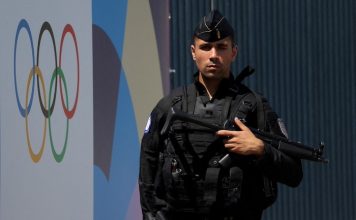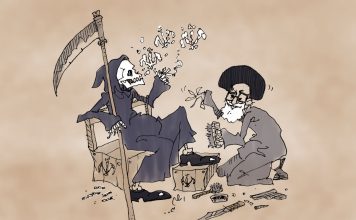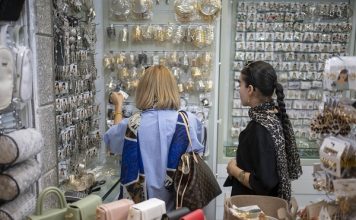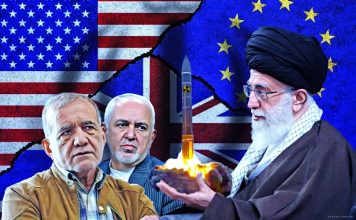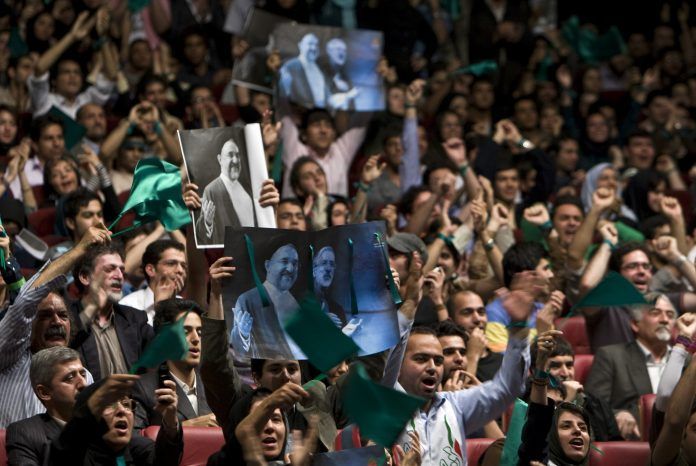
By Kayhan Life Staff
The Council for Coordinating the Reforms Front (also known as the Reformists Front Coordination Council) — an umbrella organization consisting of the main political groups within the Iranian reform movement — has been trying to plan a new strategy to win the public’s trust, confidence, and vote in the next presidential election to be held in June 2021.
The public has lost confidence in the government of President Hassan Rouhani, various groups across the political spectrum, and the Islamic Republic regime itself after state security forces brutally crushed nationwide protests in December 2018 and in October of this year.
The reformists initially blamed the government’s critics, the conservatives, and the Islamic Revolutionary Guards Corps (IRGC) for their mishandling of the unrest. However, after hearing protesters chanting “Reformists, conservatives, this is the end of your story,” they quickly realized that most Iranians were disillusioned with the Islamic Republic.
Since then, the reformists have been doing much soul-searching, hoping to win the minds and hearts of the Iranian population despite the failed policies of Mr. Rouhani’s government to circumvent stringent U.S. sanctions and tackle hyperinflation, rapid unemployment, the high cost of living and stop the spread of CPOVID-19 in the country.
It is abundantly clear that not only has the reform project failed to challenge the establishment in the past 25 years, but it has also helped the regime realize its policies. Iran’s Supreme Leader Ayatollah Ali Khamenei has described reformists and conservatives as “two wings of the state.”
However, while both factions are competing for more power and control in the 2021 election, they are dealing with internal divisions and rivalries. The infighting among various reformists groups has prevented the Council for Coordinating the Reforms Front to plan a coherent and cohesive strategy for the 2021 presidential election.
In an interview with the Iranian Labor News Agency (ILNA) on Oct. 25, Javad Emam, the chairperson of the Foundation for Freedom, Growth and Development of Iran (BARAN) — a non-profit and non-governmental organization established and headed by former President Mohammad Khatami — said that the Council for Coordinating the Reforms Front had not agreed on a definitive strategy for the 2012 election.
“The council has not reached a final decision yet. Council members continue to discuss this matter. There are differing views on the subject,” Mr. Emam noted. “God willing, we will decide on a final plan after studying all proposals thoroughly.”
“The most significant issue is taking part in the election. Although we have yet to reach a final consensus, there is no doubt about our plan to participate in the election. We all agree on that point,” Emam explained. “The key question is how we should plan, select, and nominate a suitable reformist candidate. We are working on that right now.”
“We must point out that no political party has commented on those who have already announced their candidacies because we have not made a final decision on the matter,” Emam said. “The Council for Coordinating the Reforms Front’s main goal is to participate in the election by creating a platform and selecting a reformist candidate. It will all depend on the conditions under which all political parties can operate.”
“We will have to reconsider our position if they impose any restrictions on us, which means we may decide not to take part in the election 100 percent, particularly without a candidate,” Emam explained. “We consider taking part in the election a possibility and an opportunity.”
“We must have a suitable plan and a viable candidate to take part in the election,” Emam noted. “People must know about our platform and candidate before voting for us. All political parties agree on these points. God willing, we will make our final decision in the coming weeks.”
“We also hope to see a comprehensive review of the role of state institutions in the election, particularly the Guardian Council,” Emam added. “People’s participation is the key issue in the election. Nothing will matter if people do not take part in the election, even if we get everything we want.”
In comments reported by the Islamic Republic News Agency (IRNA) on Oct. 15, Mohammad Salari, deputy general secretary of the reformist Islamic Iran Solidarity Party, said: “Some people in the reform movement believe we should take part in the 2021 election as a coalition and with no precondition, even if it means supporting an outsider candidate.”
“There are also others who say we should focus on the positive aspects of the election and forget the negatives. They argue that we must be patient with those who cannot grasp the significance of winning the presidency,” Mr. Salari noted. “Most reformists accept neither viewpoint. They say we should embrace the election under any circumstance. They note that we must urge people to take part in the election. They warn that people and the reform movement will be the real losers if we refuse to take part in the election.”
“It is a mistake to neglect the presidency,” Salari warned. “We should not seek outsider candidates, given we had a terrible experience in the 10th Majlis [Iranian Parliament] and several other instances.”
“In 2013, the reform movement threw its support behind Rouhani after the late [Akbar] Hashemi-Rafsanjani was disqualified,” Salari added. “That was their best decision, which they repeated in 2017. We would support him again if we were back in 2013 and 2017.”
However, many reformists have distanced themselves from Rouhani, given his administration’s poor performance in the past eight years.
In an interview with IRNA on Oct. 17, Dariush Ghanbari, a member of the central committee of the reformist Democracy Party, said: “While some reformists favor moderate candidates, others have said that they would take part in the election only if they can nominate their hand-picked nominees. It would be difficult to convince these groups to support other candidates but their own.”
“All strategies and calculations will change as we get closer to the election, but as things stand, many reformists will only support their chosen candidates,” Mr. Ghanbari added.
In comments reported by the Tehran-based Etemad newspaper on Oct. 16, Jalal Jalalizadeh, a member of the reformist Union of Islamic Iran People Party, said: “Reformists would shoot themselves in the foot for the last time if they supported a non-reformist outsider candidate.”
“Experience has shown that candidates who have been recruited by proxy and through alliances will abandon the agreed reformist agenda as soon as they are elected. As a result, the public loses confidence in the reformists,” Mr. Jalalizadeh added.
In an interview with IRNA on Oct. 17, Esmail Gerami-Moghaddam, the spokesperson for the reformist National Trust Party, said: “Reformists will not risk supporting a non-reformist outsider candidate if theirs do not qualify, given the heavy price they have paid in the past for doing just that.”
This article was translated and adapted from Persian by Fardine Hamidi.


